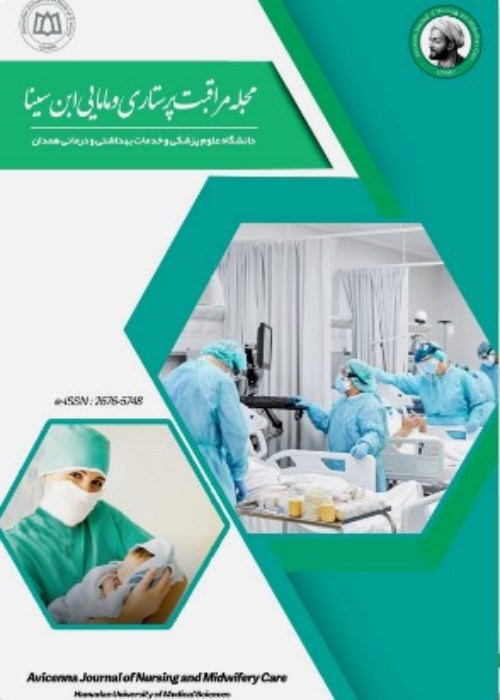The Effect of Health Belief Model Education on COVID-19 Preventive Behaviors in Nurses Working in Corona Wards of Farshchian Sina Hospital, Hamadan, 2022
This study aimed to investigate the effect of education based on the health belief model on the COVID-19 preventive behaviors in nurses working in the Corona wards of Farshchian Sina Hospital, Hamadan, Iran, in 2022.
This semi-experimental two-group study was conducted based on the pretest-posttest design with a control group. Initially, the nurses were classified and 70 cases from each class were randomly assigned into two intervention and control groups. In the intervention group, an educational program including the health belief model structures was used in 45-min three instructional sessions. Finally, after a month, a final evaluation was conducted, and a posttest was administered using the initial questionnaire. The collected data were analyzed using SPSS (latest version) software through paired t-test, independent t-test, and ANCOVA at the significance level of 95%.
Based on the paired t-test results, the mean scores of the nurses' awareness (P=0.02), perceived severity (P=0.000), perceived benefits (P=0.000), perceived barriers (P=0.006), self-efficacy (P=0.008), performance guide (P=0.002), and preventive behaviors (P=0.007) showed a statistically significant difference in the interventional group before and after the intervention.
The present educational intervention based on the health belief model has significantly improved the knowledge and preventive behavior of nurses towards COVID-19. Therefore, healthcare professionals and public health experts can use the health belief model to develop programs and interventions to help prevent health problems, encourage therapeutic behaviors, and support behavior change. It is recommended that instructional courses based on the health belief model be held for nurses working in the wards related to COVID-19 because they are at a higher risk of contracting COVID-19.
- حق عضویت دریافتی صرف حمایت از نشریات عضو و نگهداری، تکمیل و توسعه مگیران میشود.
- پرداخت حق اشتراک و دانلود مقالات اجازه بازنشر آن در سایر رسانههای چاپی و دیجیتال را به کاربر نمیدهد.


